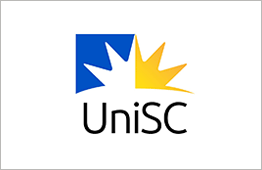Catheter-associated Skin Injury in Paediatrics
Posted
on 29 April 2020
Getting to know AVATAR...
This week, Vic from the Vascular Access Management Service discusses catheter-associated skin injury in paediatrics and offers tips for how paediatric nurses handle this common clinical issue.
Skin issues in children, a challenge for vascular access clinicians
Hi, my name is Victoria. I'm a pediatric nurse working in access a common issue that our patient group seems to have is catheter Associated skinning pain and injury usually relat...
| Posted in:AVATARdressingsIV managementpaediatricsvascular access devices |
Nursing Care of Critically Ill Patients with a Central Venous Catheter
Posted by Gillian Ray-Barruel
on 29 April 2020
In this time of COVID-19, many nurses are upskilling to take care of critically ill patients. AVATAR recently collaborated with Continulus to create the following lecture
;
In this session, Dr Gillian Ray-Barruel covers the following objectives:
1. Review possible complications during and following CVC insertion
2. Discuss principles of nursing management post-insertion:
Flushing
Safe blood sampling
Medication and fluid administration
Dressing changes
3. Describe t...
| Posted in:AVATARcentral vascular access deviceseducationIV managementIV therapypatient safetyvascular access devices |
Getting to know AVATAR
Posted by Gillian Ray-Barruel
on 16 April 2020
Getting to know AVATAR.
In this video, I encourage you to look around the website and explore our FAQs and Publication pages.
| Posted in:AVATAReducation |
AVATAR Newsletter | March 2020
Posted by Rita Nemeth
on 1 April 2020
| Posted in:AVATARcentral vascular access devicesinfection preventionIV managementpatient experiencevascular access devices |
Managing vascular access devices for patients in source isolation
Posted by Gillian Ray-Barruel
on 1 April 2020
Now more than ever, many of us are caring for sick patients requiring source isolation for infectious (e.g. SARS-CoV2 [COVID-19]) or multi-resistant organisms (MRSA, VRE, etc). The last thing any patient needs is a bloodstream infection. For patients with an existing infection, a bloodstream infection can be particularly deadly.
So, how do you make sure your vascular access devices (VAD) are functioning properly when you can't be in the patient's room at all times?
Here are a fe...
| Posted in:assessmentdressingsflushinginfection preventionintravenous catheterIV managementpatient experiencesecurementvascular access devices |
IVNNZ Inc. Call for Conference Abstracts
Posted
on 30 October 2019

| Posted in:vascular access devices |
Seeking input and feedback from consumers with experience of a vascular access device
Posted
on 28 August 2019
We are seeking input and feedback from consumers with experience of a vascular access device to participate in a short survey about what vascular access information is important to them.
This involves completing a short, online survey about vascular access variables proposed by our research team (e.g., "pain rating", "difficult venous access") and rating their importance according to the individual's own experience.
https://prodsurvey.rcs.griffith.edu.au/prodls200/in...
| Posted in:AVATARpatient experiencevascular access devices |
Vessel Health and Preservation: The Right Approach for Vascular Access
Posted
on 25 June 2019
Vessel Health and Preservation: The Right Approach for Vascular Access, edited by Dr Nancy Moureau, has just been released.
This open-access book has been possible thanks to the generous contributions of 3M, Teleflex and Nancy Trick. The free access provision would not have happened without the support and generous offerings of these three and the assistance of the Association for Vascular Access Foundation. Many thanks to the donors and supporting associations of the Association ...
| Posted in:assessmentcentral vascular access devicesintravenous catheterIV managementvascular access devices |
MHIQ at the Pint of Science Festival
Posted
on 13 June 2019
The Pint of Science Australia runs events to bring researchers across all fields of science, technology, engineering, mathematics and medicine to share their recent discoveries with the local community.
At the sold-out, Tuesday night event, Associate Professor Amanda Ullman presented her team's NHMRC-funded project on peripherally inserted central catheter innovation to reduce infection and clots (PICNIC trial).
Read more about it here.
...
| Posted in:AVATARinfection preventionpatient experiencevascular access devices |
Could an evidence-based securement bundle help reduce peripheral intravenous catheter failure?
Posted
on 12 June 2019
PhD candidate, Amanda Corley, is investigating the concept of an evidence-based securement bundle as a means of addressing the current unacceptably high failure rate in peripheral intravenous catheters (PIVCs).
PIVCs are a mainstay of modern healthcare with over 2 billion used globally each year, however around 40% of them fail before medical treatment is completed.
Read more about it here.
...
| Posted in:AVATARinfection preventionIV managementvascular access devices |








